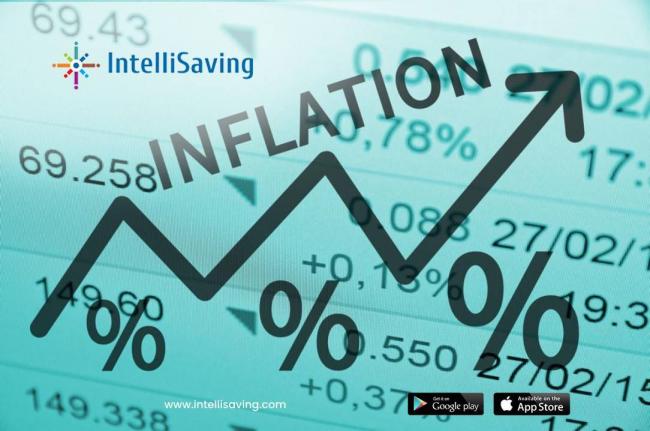
What is Inflation? And its impact on your Savings?
“People invest in stocks for two opposite reasons—in hope and confidence in the future of an enterprise or in fear that the value of their capital will be lost through inflation”- Bernard Baruch
Understanding Inflation is vital because of its effect on the cost of living and the potential impact on managing finances, such as saving accounts. The current Inflation rate as of February 2022 is 5.4%. A rise in inflation can be positive if the increase is not extreme. However, according to the BBC, there has been a staggering climb from 0.5% to 0.25%. The Bank of England had already suggested that there would be an increase in prices.
Furthermore, salaries are projected to rise slower than the cost of living, which would cause a substantial squeeze in the financial pockets of the public in decades. This comes shortly after the Chancellor revealed a support bundle to assist those most in need after an astonishing 54% soar in energy bills. The primary cause driving up costs across the economy is a rise in gas and electricity costs.
But what is inflation, and to what extent does this affect livelihoods and savings?
What is Inflation?
Inflation is the rate at which supplies prices have gone up, such as transport, food, clothing, and mortgages. Typically, individuals measure inflation’s speed by comparing the cost of things at present compared to the previous year. The median increase of prices is referred to as the inflation rate. For instance, if inflation is 3%, prices have had a 3% rise (on average) compared to the year before. If a pint of milk was £1.00 previously and is now £1.03, this is a rise of 3%.
How is inflation measured in the UK?
The Office for National Statistics (ONS) gathers approximately 180,000 prices for around 700 items monthly. The items they collect are used to calculate the Consumer Prices Index (CPI), used to measure inflation. The CPI is one of the most commonly used indicators for detecting inflation and deflation phases.
In addition, the Consumer Prices Index (CPI) is anticipated to reach peak levels of 7.25% in April, with a median of almost 6% in 2022. If this happens, it would be the fastest price increase since 1991 and go above the target that the government of 2% has given the bank.
The bank of England’s rate of inflation?
The government gave the bank of England a target of 2 % to maintain inflation at a down and stable rate. These facilities things for everyone to plan for the future. However, if inflation increases considerably or changes constantly, it can be challenging for businesses to set accurate prices and for consumers to prepare their spending strategy.
In contrast, if inflation is negative or significantly low, consumers may delay purchasing, hoping that prices will decrease. Though lower prices may seem like a win, companies could go bankrupt if everyone lessened their spending, and people may be laid off. The pandemic has also contributed to interest rates reaching record lows.
What is the difference between High and Low Inflation?
When inflation is high, you can purchase less than usual, but the decrease in money buying capacity is happening faster than normal for the same amount of money.
Furthermore, when the inflation rate is 1% (lower inflation), the buying power would be 1% less the following year. However, when the inflation rate is 5% (higher inflation), the buying power of funds would be 5% less the year after.
How could inflation affect your savings?
The inflation rate can have a colossal effect on whether your savings and investments make revenue after inflation. If you deposit money in a bank account with a 1% interest rate, you will have 1% more cash the following year. If your objective is to profit from your investment, you will need to look for an account or investment that can beat inflation when the returns you make are more significant than the inflation rate.
Can I protect my savings from inflation?
If interest rates are low, savers should look for savings accounts with the best rates, such as an easy access rate for rainy days for a period of 3-6 months. However, if you can stay without accessing your savings for more than six months, a Fixed bond rate may be a more suitable option.
Some may consider the stock market to increase the possibility of beating inflation; though this is quite a risky investment, you could earn higher returns if it pays off. You can also prevent your money from being significantly affected by inflation by looking at your spending habits. You could be saving by purchasing own-brand options in supermarkets and shops. Also, splitting money across different saving accounts or different investments may be worth looking into.
Is defeating inflation worthwhile?
If you have a short-term objective that involves spending your money within five years, it is more secure in choosing a saving account and not focus extensively on inflation. However, considering inflation when investing is crucial if you have a long-term objective. Because typically, citizens take better returns on riskier investments. If you prefer to keep your money secure, opening a savings account with a low-interest rate and regularly adding money may be the best route. But what you choose will depend on your circumstances, whether you can and want to take risks with your money, and your reason for saving.